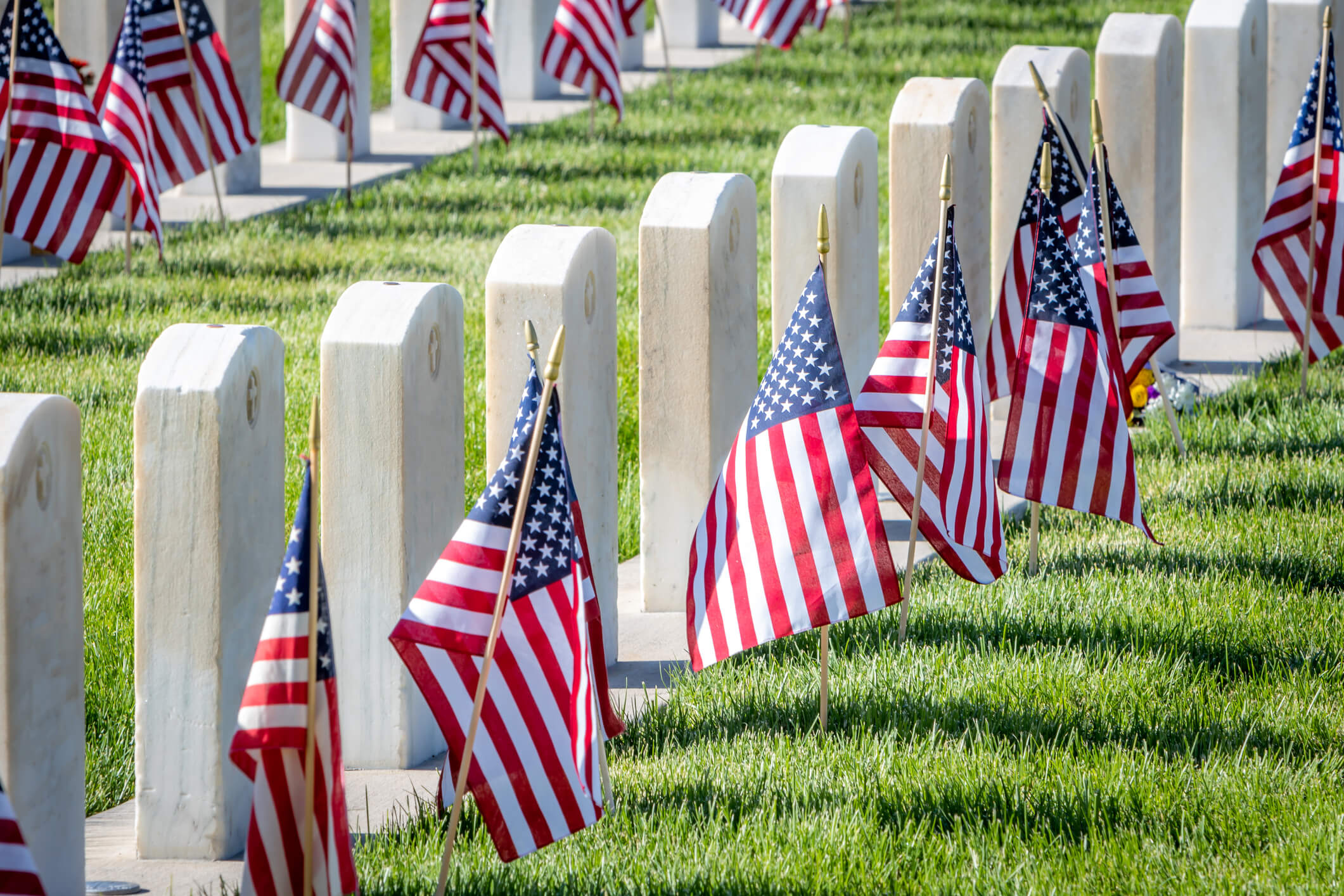Many in the nation understand that this is not a typical long weekend. For veterans, families of those who have served, and, most importantly, our Gold Star families, this is a weekend to remember the sacrifices of those who gave their lives in service to our nation. Many civilians may likely spend this weekend not contemplating the loss our Gold Star families and veterans are feeling. As of 2020, there are about 167,000 living veterans from WWII, about 850,000 from the Korean War, and a little over a half a million who served in Vietnam. In more recent memory, nearly 3 million served in Iraq or Afghanistan, and many were deployed multiple times. All of these veterans hold Memorial Day as sacred, and I hope you will have a discussion as a family about what this day means.
Often, when celebrating Memorial Day in this blog, I tend to focus on an individual story of a serviceman or woman who lost their life. However, after having one of our alumni, Major Geoff Ball, tell his story to my students of how many of his Marines lost their lives in an ISIS explosion during the U.S. withdrawal from Afghanistan at the Abbey Gate at the Kabul Airport, I want to help us all try to understand just how radical the notion of military service is, why we should be grateful, and what our responsibility is to our servicemen and women. Major Ball, of course, shared personal recollections of those who died in this tragic event, as well as aspects of each of his Marines’ personality and character. His talk focused on service and noted how those who serve follow their orders—no matter how ridiculous or how obviously dangerous.
After Vietnam, the U.S. moved from a draftee army (with some volunteers) to an all-volunteer Army. We civilians must recognize that joining the military in some ways is what I would call “radical” service. Not “radical” in the sense of any political ideology, but “radical” in the sense that one is essentially giving up all their own personal freedoms to serve their nation. Once in the military, one is literally “government issue.” They still have certain freedoms, but so much of themselves is thus committed to a larger system. This system determines where they live and how they structure their lives. In the case of warfare and combat, it dictates personal safety. Just the commitment to the military is an act of courage, trust, and ultimate selflessness. While we can research and be inspired by countless stories of heroism and sacrifice, we also must remember that in the wars of the 20th and 21st centuries, no matter how noble the cause, there were also too many who lost their lives in tragic and hard to comprehend ways. These servicemen and women gave everything—their freedom, their family, their control, their mental health, their ego—and should be remembered and respected.
When Major Ball spoke to my students, he pleaded with them to vote and to be aware of the issues in a dangerous world. He noted that the American military will go wherever they are told. However, citizens must help direct our leaders in righteous ways and in a manner that serves the national interest. As a historian of the Vietnam War and a son-in-law to a Vietnam Veteran, it is important to highlight how policymakers determine the fate of our military. From Oval Office recordings, we know that Lyndon Johnson knew that the war was unwinnable by the spring of 1964—a year before he sent American troops in to engage in combat. In 1968, Nixon ran on a peace campaign, while interfering surreptitiously with the Paris Peace Accords, and prolonged the war. Over 40% of American casualties in Vietnam happened under Nixon. Historians have long established a failed strategy in Vietnam that was not effective. In Vietnam, only a dozen generals died in combat, and most from air crashes. Vietnam was a war in which the political and military leadership was far away from those who were doing the fighting and dying.
I cannot comprehend the loss for the families and the pain many living veterans still go through when they think about their loss. But, as a civilian, I must try to understand it. I must respect it. And, as an educator, I think it is important to highlight these issues for our families so that you can talk about it when your children are ready. Our servicemen and women, our veterans, and, importantly, their families, deserve our gratitude and thanks. More importantly, they need us to understand the issues they face and the depth of their many sacrifices. Those who have fallen deserve to be remembered, and we owe it to them to be more informed and grateful for their selflessness and sacrifice.
